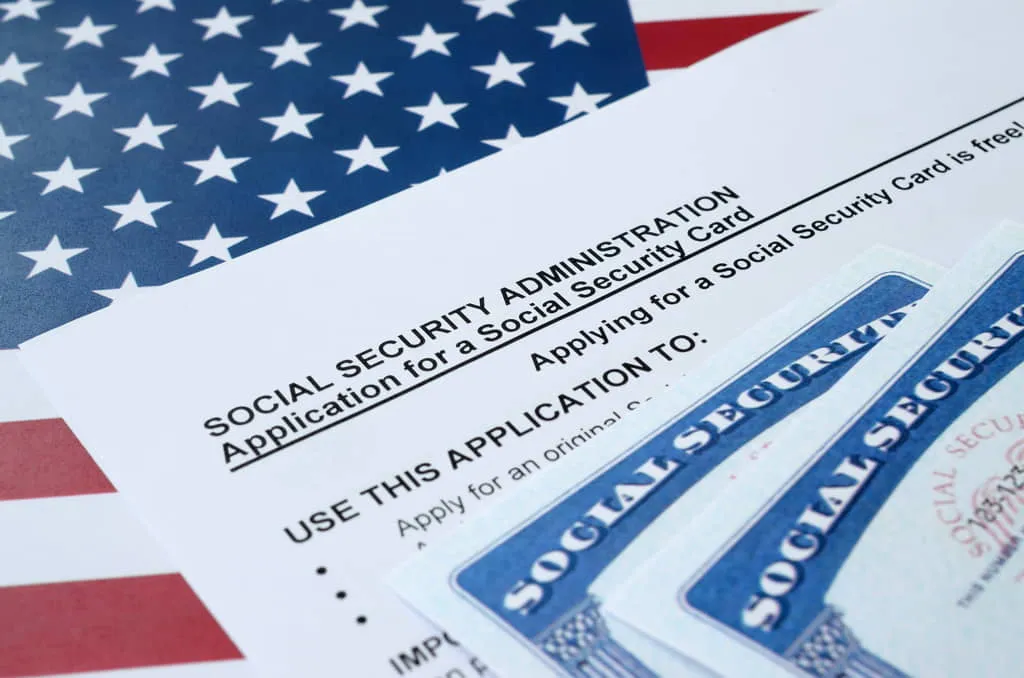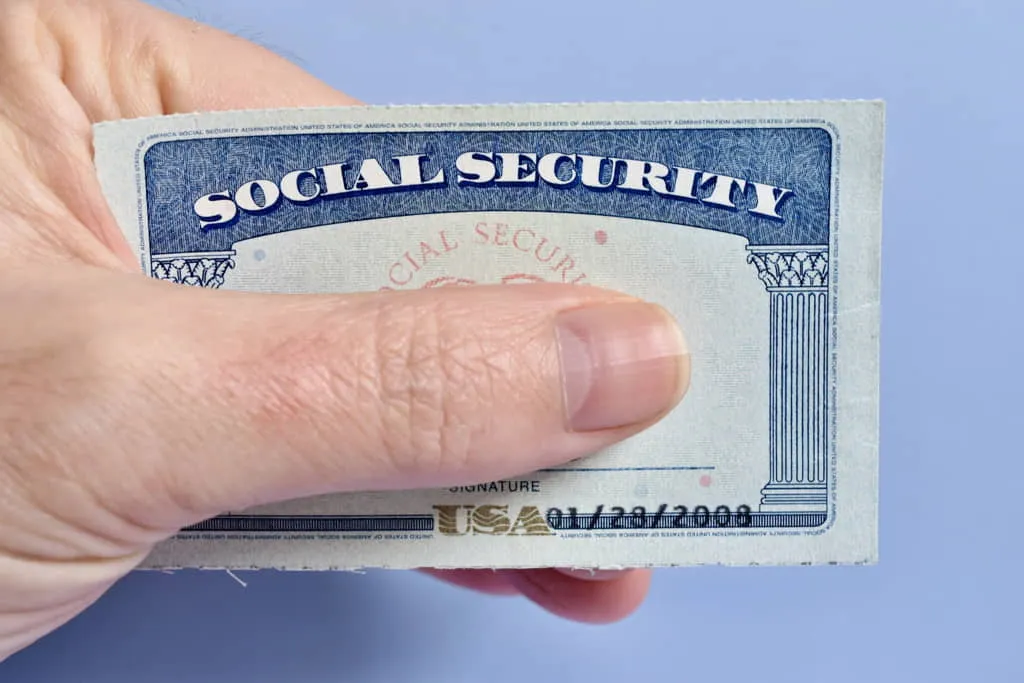How to Obtain a Social Security Number?
If you are a U.S. citizen or a legal resident, obtaining a Social Security number is an important step in establishing your identity and accessing various government services. To obtain a Social Security number, you will need to complete an application form and provide supporting documents, such as a birth certificate and proof of citizenship or immigration status. Once approved, you will receive a unique nine-digit number that is used for tax purposes, employment, and accessing government benefits.
Many individuals wonder about the process of applying for a Social Security number, the required documents, and the eligibility criteria. Additionally, some may be interested in understanding the significance of having a Social Security number and how it is used in various aspects of daily life, such as opening a bank account or applying for a loan. Others may seek information on how to replace a lost or stolen Social Security card, or how to update their information if they experience a name change or other life event. Understanding the process and importance of obtaining a Social Security number can be crucial for individuals navigating life in the United States.

What is a Social Security Number and Why is it Important?
A Social Security Number (SSN) is a unique nine-digit number issued to citizens, permanent residents, and temporary residents in the United States. It is used by the government to track individuals for taxation, social security benefits, and other legal purposes. The SSN is also used by employers for employee identification and reporting purposes.
Having a Social Security Number is important because it is required for various activities such as obtaining employment, opening a bank account, applying for government benefits, and filing taxes. It also serves as a form of identification and is often requested for credit checks and other financial transactions.
Eligibility Requirements for Obtaining a Social Security Number
In order to be eligible for a Social Security Number, an individual must be a U.S. citizen, a permanent resident with a valid green card, or a non-citizen allowed to work in the U.S. by the Department of Homeland Security. In addition, the individual must meet certain documentation requirements, such as providing proof of age, identity, and citizenship or immigration status.
For non-citizens, there are specific visa categories that allow for SSN eligibility, such as those with employment authorization, refugees, and asylees. It is important to verify the specific eligibility requirements based on individual immigration status.
Application Process for a Social Security Number
The application process for obtaining a Social Security Number typically involves visiting a local Social Security Administration (SSA) office and completing Form SS-5, Application for a Social Security Card. In addition to the completed form, the individual will need to provide original documents to verify their identity, citizenship or immigration status, and work eligibility.
Once the application is submitted, the SSA will verify the documents provided and process the request. If approved, a Social Security card with the assigned number will be mailed to the individual. It is important to note that there is no fee for applying for a Social Security Number.

Obtaining a Social Security Number for Children
Children can also obtain a Social Security Number, typically at birth or shortly thereafter. Parents can apply for a child’s SSN when applying for their birth certificate at the hospital. If the child is not assigned an SSN at birth, parents can apply for one by completing Form SS-5 and providing the child’s proof of age, identity, and citizenship status.
A Social Security Number is important for children as it is required for various purposes such as claiming them as dependents on tax returns, opening bank accounts, and applying for government benefits on their behalf. It also helps establish their identity for future financial and legal transactions.
Replacing a Lost or Stolen Social Security Card
If a Social Security card is lost or stolen, it is important to take steps to protect against identity theft. The first step is to report the loss to the SSA and request a replacement card. This can typically be done by completing Form SS-5 and providing the required documentation to verify identity.
It is also important to monitor for any signs of identity theft or fraudulent activity, such as unauthorized use of the SSN for employment or financial transactions. In some cases, it may be necessary to notify credit reporting agencies and place a fraud alert on the individual’s credit report.

Using a Social Security Number for Employment Verification
Employers are required to verify the identity and work eligibility of their employees, which often involves obtaining and recording their Social Security Number. This information is used for tax reporting purposes and to ensure compliance with immigration laws. Employers must also provide employees’ SSNs on various forms and filings, such as W-2s and 1099s.
It is important for individuals to ensure that their SSN is accurately recorded by their employers and that it is not misused for unauthorized purposes. Employers are responsible for safeguarding employees’ SSNs and using them only for legitimate business purposes.
Protecting Your Social Security Number from Identity Theft
Given the sensitive nature of the information associated with a Social Security Number, it is important to take steps to protect it from identity theft. This includes safeguarding the physical Social Security card, not sharing the SSN unnecessarily, and being cautious about providing it in response to requests from unknown or unverified sources.
It is also important to monitor for any signs of potential identity theft, such as unauthorized use of the SSN for financial transactions or employment. Regularly reviewing credit reports and promptly addressing any discrepancies or suspicious activity can help mitigate the impact of identity theft.
Understanding the Legal Uses of a Social Security Number
A Social Security Number has specific legal uses and limitations. It is primarily used for taxation, social security benefits, and work eligibility verification. It is also used for certain government benefits and programs, such as Medicare and Medicaid. However, it is important to be cautious about providing the SSN and to verify the legitimacy of requests for the number.
It is illegal for individuals or businesses to use a Social Security Number for purposes other than those authorized by law, such as for identity theft, fraud, or unlawful employment practices. Understanding the legal uses of the SSN can help individuals protect their identity and prevent misuse of their personal information.
Applying for a Social Security Number for Non-Citizens
Non-citizens who are authorized to work in the United States can apply for a Social Security Number if they meet certain eligibility requirements. This typically involves providing documentation to verify their immigration status and work authorization, such as a work visa, employment authorization document, or other relevant immigration documents.
The process for non-citizens to obtain a Social Security Number is similar to that for citizens and permanent residents, but it may require additional documentation related to their immigration status. It is important for non-citizens to understand the specific requirements and procedures for obtaining an SSN based on their individual immigration status.
Using a Social Security Number for Tax Purposes
A Social Security Number is essential for tax purposes in the United States. It is used to report income, file tax returns, and claim various tax benefits and credits. Employers use the SSN to report wages and withholdings, and individuals use it to file their tax returns and communicate with the Internal Revenue Service (IRS).
It is important for individuals to ensure that their SSN is accurately reported on their tax documents and that it is not used fraudulently by others for tax-related purposes. Safeguarding the SSN and promptly addressing any discrepancies on tax documents can help prevent issues with tax reporting and identity theft.
Steps Description Step 1 Fill out an application for a Social Security number at a Social Security office. Step 2 Provide original documents that prove your age, identity, and U.S. citizenship or immigration status. Step 3 Wait for the Social Security Administration to process your application and assign you a Social Security number. Step 4 Receive your Social Security card in the mail.
CONCLUSION
To obtain a Social Security number, you need to visit a Social Security office, fill out an application, provide necessary documents, and wait for the administration to process your application and send you the Social Security card.



